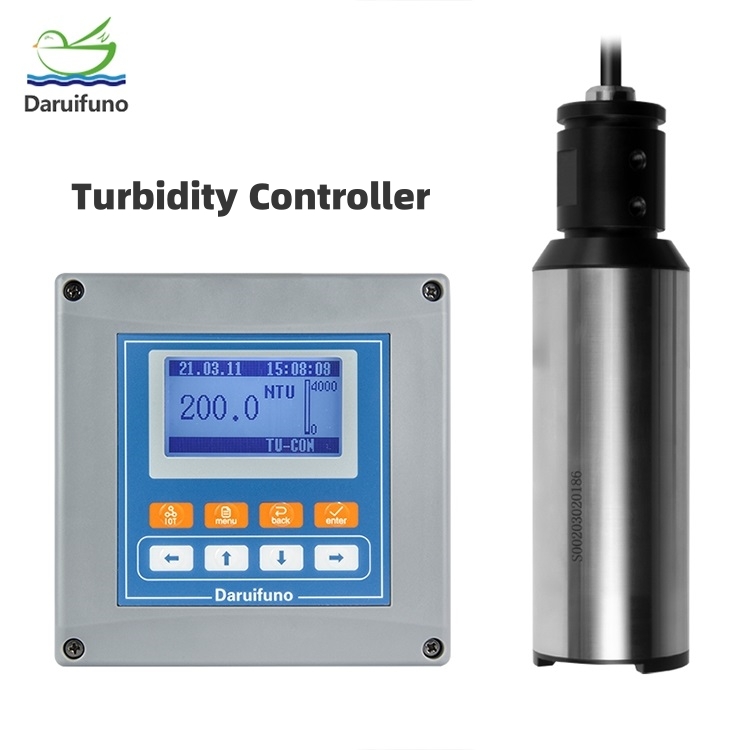As a supplier and manufacturer of turbidity controllers and turbidity transmitters, Daruifuno stands as a trusted partner in the field of water quality analysis. Committed to excellence and innovation, we provide cutting-edge solutions that cater to the evolving needs of our customers. Our turbidity controllers and turbidity transmitters embody our dedication to precision and reliability, offering robust performance in diverse water quality monitoring scenarios. If you are in search of reliable and versatile water quality analysis instruments, Daruifuno's turbidity controllers and turbidity transmitters are your ultimate choice. Our products are designed to deliver precise and dependable results, empowering you to make informed decisions about your water quality management. Contact us today to learn more about our offerings and discover how we can support your efforts in achieving precise and reliable water quality monitoring. Turbidity Controller,Turbidity Transmitter Suzhou Delfino Environmental Technology Co., Ltd. , https://www.daruifuno.comDescription

[Technology] Properties, Melting and Heat Treatment Processes of Cast Titanium Alloys
Titanium and its alloys have only been utilized industrially for over 50 years. Despite this relatively short history, they have gained significant attention due to their unique properties, such as low density, high specific strength, excellent corrosion resistance, a small coefficient of thermal expansion, and outstanding biocompatibility. These characteristics make titanium an ideal material for various advanced applications. Additionally, titanium is abundant in the Earth's crust, further enhancing its potential for widespread use.
Over the years, titanium has found its way into critical industries such as aerospace, energy, marine transportation, chemical processing, and healthcare. Its ability to withstand harsh environments while maintaining structural integrity has made it an essential component in many high-performance systems. However, despite these advantages, the production and processing of titanium remain challenging.
One of the main obstacles in working with titanium is its high chemical reactivity, especially when in a molten state. It tends to react with most refractory materials commonly used in metallurgy, making melting and casting processes complex and costly. As a result, the manufacturing of titanium components requires specialized equipment and techniques, which significantly increase production costs.
These challenges have limited the widespread adoption of titanium and its alloys compared to more traditional materials like steel, iron, aluminum, and copper. While titanium has shown great promise and continues to be a subject of ongoing research and development, its application remains more niche due to the technical and economic barriers involved. Nevertheless, as technology advances and production methods improve, the future of titanium looks increasingly bright, with the potential to expand into even more industries in the coming decades.
Turbidity controller, also known as turbidity transmitter, is a digital online device used for testing water plants, swimming pools, drinking water, etc.
Daruifuno's turbidity controller & transmitter has high accuracy and precision, providing reliable measurement results, which is essential for critical applications. A high-quality Turbidity Analyzer can cover a wide range of turbidity and can accurately measure low turbidity to high turbidity liquids. Daruifuno's Turbidity Sensor can measure turbidity values ​​in the range of 0~4000NTU, with a fast response speed, providing turbidity results in a short time and improving work efficiency. The turbidity controller has a 3.2-inch LCD display with an intuitive user interface and an easy-to-operate control panel, allowing operators to easily use and configure the instrument. It also has data logging and storage functions, which can save measurement results and related parameters for subsequent analysis and review.
The housing protection level reaches IP66, and the enhanced ABS material makes the turbidity controller durable and reliable, and can operate stably for a long time in various working environments, reducing maintenance and failures.